The Black Ink Team's Guide To Inground Swimming Pools
by Black Ink Team
A pool is not just a hole in the ground with some water in it. Well, actually, it sort of is - but the hole in the ground isn't any normal hole in the ground, and the water isn't any normal water. The hole in the ground needs special add-ons; so does the water. Here, we will discuss the various additional ingredients that make up the recipe for a pool that won't immediately degrade and turn into a scum-ridden mess, besides water and a hole in the ground.
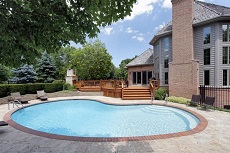
Before you can even start building an inground pool, you need a government-issued permit. Most places have laws demanding that pools be surrounded by a fence. Once the hole is dug by contractors, a smorgasbord of pipes and wiring must be placed into it. This is for the jets, the intakes, and the lights. Then, the next layer on top of that is a waterproof liner. Gunite, vinyl, and fiberglass are all materials that can be used to make pool linings.
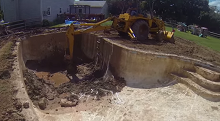
Unless you like feeling like you are going to turn into a popsicle, or if you live somewhere warm, you are probably going to need a heater. There are three types of pool heaters: electric, gas, and solar. Electric pool heaters are expensive to purchase but inexpensive to operate (gas pool heaters are the exact opposite). Solar panel pool heaters operate by soaking up heat from the sun then using circulating water to transfer it to your pool.
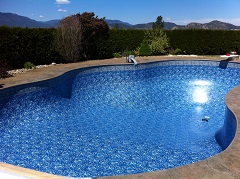
For a basic (empty) swimming pool, the final ingredient is a filtration system. These are made up of two parts: a filter and a skimmer. Pool filters consist of a medium that the water gets pumped through and catches small contaminants. The medium can be sand, a synthetic cartridge, or diatomite. Each medium has a tradeoff: sand picks up fewer contaminants but is cheaper, cartridges last longer but pick up about the same amount as sand, and diatomite picks up the most but is more expensive. Skimmers are rectangular ports in the sides of pools which lead to a grate and suck in water - the mesh in the grate stops large contaminants and stops them from clogging the filter.
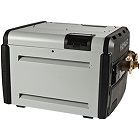
Hayward’s Universal H-Series ASME Gas Heater
Fill it up with water, and you're still not done, because you now need chemicals. The chemical you need the most of is a sanitizer (chlorine or bromine, take your pick). Sanitizers help break down contaminants so that they can be filtered out easier by your filter. Next, you need an oxidizer (or 'shock'). The reason oxidizers are also called shock is because, in a way, that is precisely what they are - you pour a good amount of it into your pool every couple of weeks, thus raising the chlorine/bromine levels greatly and 'shocking' the system. The combined use of sanitizer and oxidizer can kill most algae and bacteria that you will face, but sometimes you might get a special case, for which you will require special chemicals or to replace the water in your pool.
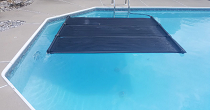
Natural Current’s Savior Floating Solar Thermal Water Heater
Additionally, on top of keeping your pool stocked with bacteria-fighters, you need to watch its pH levels. Acids and bases are categorized by their pH levels; water can be an acid or a base, or in other words it fluctuates. Contaminants can make your pool too acidic or basic, which can make it easier for more contaminants to proliferate. Therefore, you need to periodically use pool test kits to assess the pH level of your pool's water, and add a chemical called a water balancer to bring it back to neutral.
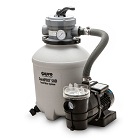
Namco’s Game Sand Pro Sand Filter
Now, we will move on to the stuff that a pool owner doesn't technically need but will allow them to get better enjoyment and use out of their pool. For starters, pool covers extend the lifespan of pools because they stop debris from falling into them. You can buy special 'solar' pool covers that allow heat from the sun to accumulate underneath it, thus saving you money on energy costs running your heater. If your pool is a custom size or shape, you will have to buy a custom pool cover to fit it properly.

Algae can collect on a pool's liner, break off, and make its water murky. To fix this you can buy long-handled brushes to scrape off the algae. A hands-free approach would be to buy a robot vacuum - a device that connects to your pool's skimmer and travels randomly across its liner, scrubbing and sucking off algae as it goes. Disclaimer: while tipping your pool's robot vacuum isn't necessary, it can't possibly hurt.
